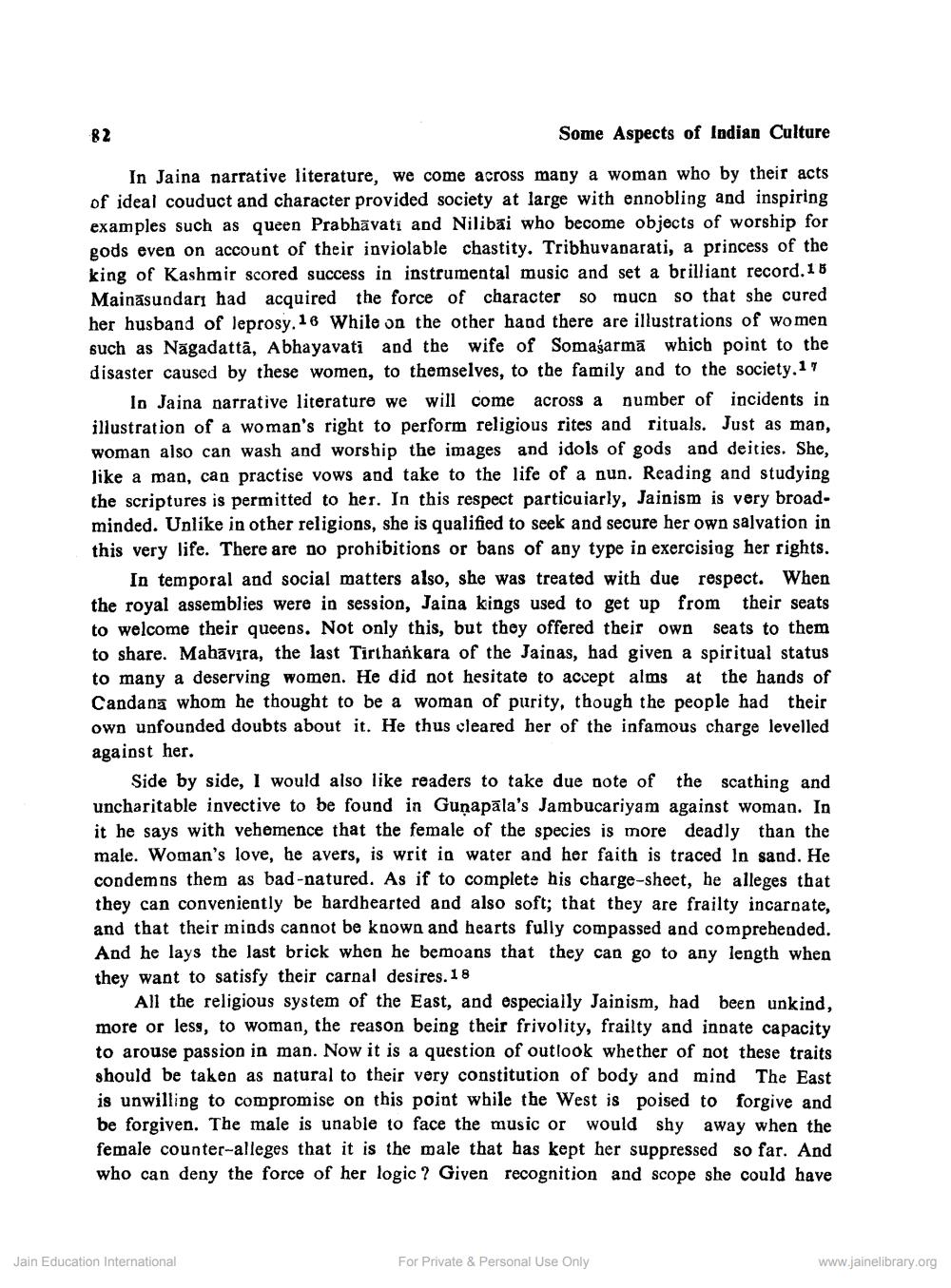________________
82
Some Aspects of Indian Culture
In Jaina narrative literature, we come across many a woman who by their acts of ideal couduct and character provided society at large with ennobling and inspiring examples such as queen Prabhāvati and Nilibai who become objects of worship for gods even on account of their inviolable chastity. Tribhuvanarati, a princess of the king of Kashmir scored success in instrumental music and set a brilliant record. 15 Maināsuodarı had acquired the force of character so much so that she cured her husband of leprosy. 16 While on the other hand there are illustrations of women such as Nagadatta, Abhayavati and the wife of Somagarmā which point to the disaster caused by these women, to themselves, to the family and to the society.17
lo Jaina narrative literature we will come across a number of incidents in illustration of a woman's right to perform religious rites and rituals. Just as man, woman also can wash and worship the images and idols of gods and deities. She, like a man, can practise vows and take to the life of a nun. Reading and studying the scriptures is permitted to her. In this respect particuiarly, Jainism is very broadminded. Unlike in other religions, she is qualified to seek and secure her own salvation in this very life. There are no prohibitions or bans of any type in exercising her rights.
In temporal and social matters also, she was treated with due respect. When the royal assemblies were in session, Jaina kings used to get up from their seats to welcome their queens. Not only this, but they offered their own seats to them to share. Mahavira, the last Tirthankara of the Jaioas, had given a spiritual status to many a deserving women. He did not hesitate to accept alms at the hands of Candana whom he thought to be a woman of purity, though the people had their own unfounded doubts about it. He thus cleared her of the infamous charge levelled against her.
Side by side, I would also like readers to take due note of the scathing and uncharitable invective to be found in Guņapāla's Jambucariyam against woman. In it he says with vehemence that the female of the species is more deadly than the male. Woman's love, he avers, is writ in water and her faith is traced in sand. He condemns them as bad-natured. As if to complete his charge-sheet, he alleges that they can conveniently be hardhearted and also soft; that they are frailty incarnate, and that their minds cannot be known and hearts fully compassed and comprehended. And he lays the last brick when he bemoans that they can go to any length when they want to satisfy their carnal desires. 18
All the religious system of the East, and especially Jainism, had been unkind, more or less, to woman, the reason being their frivolity, frailty and innate capacity to arouse passion in man. Now it is a question of outlook whether of not these traits should be taken as natural to their very constitution of body and mind The East is unwilling to compromise on this point while the West is poised to forgive and be forgiven. The male is unable to face the music or would shy away when the female counter-alleges that it is the male that has kept her suppressed so far. And who can deny the force of her logic ? Given recognition and scope she could have
Jain Education International
For Private & Personal Use Only
www.jainelibrary.org




